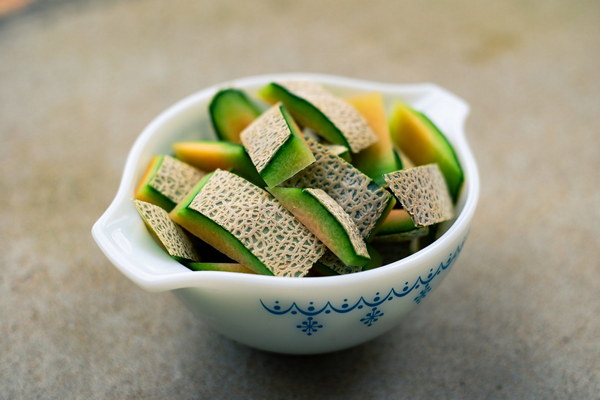Nourishing Your Recovery A Guide to Postoperative Blood Deficiency Diet Therapy
After undergoing surgery, the body often experiences blood deficiency, leading to fatigue, weakness, and slow recovery. To aid in the healing process, postoperative blood deficiency diet therapy plays a crucial role. This article will explore the importance of this diet, the nutrients required, and some delicious recipes to help you on your road to recovery.
Introduction
Blood deficiency, also known as anemia, is a common condition following surgery. It occurs due to blood loss during the procedure, leading to a decrease in red blood cell count and hemoglobin levels. This deficiency can cause symptoms such as dizziness, weakness, and an increased heart rate. To combat these symptoms and accelerate healing, postoperative blood deficiency diet therapy is essential.
Nutrients for Postoperative Blood Deficiency Diet Therapy
1. Iron: Iron is a vital mineral that helps in the production of hemoglobin, the protein responsible for transporting oxygen to the body's tissues. Foods rich in iron include red meat, poultry, fish, beans, lentils, and leafy greens.
2. Vitamin C: Vitamin C enhances iron absorption from plant-based foods. Citrus fruits, berries, tomatoes, and bell peppers are excellent sources of vitamin C.
3. Vitamin B12: B12 is crucial for red blood cell production. Animal products such as meat, fish, eggs, and dairy are rich in vitamin B12. Fortified cereals and plant-based milks can also provide this nutrient.
4. Folic Acid: Folic acid is another essential nutrient for red blood cell production. Dark leafy greens, legumes, citrus fruits, and fortified cereals are great sources of folic acid.
5. Protein: Adequate protein intake is essential for tissue repair and healing. Lean meats, fish, eggs, dairy, legumes, and nuts are excellent protein sources.
6. Zinc: Zinc is important for immune function and wound healing. Oysters, beef, lamb, pork, poultry, legumes, and nuts are rich in zinc.
Delicious Recipes for Postoperative Blood Deficiency Diet Therapy
1. Iron-Boosting Beef Stir-Fry
Ingredients:
- 1 lb beef (sirloin or flank), thinly sliced
- 1 cup broccoli florets
- 1/2 cup snap peas
- 1/2 cup carrots, thinly sliced
- 2 tbsp soy sauce
- 1 tbsp oyster sauce
- 1 tsp sesame oil
- 1 tsp garlic, minced
- 1 tsp ginger, minced
- Salt and pepper, to taste
Instructions:
- Heat 1 tbsp oil in a large skillet over medium-high heat. Add beef and cook until browned on both sides. Remove from the skillet and set aside.
- In the same skillet, add 1 tbsp oil. Sauté garlic and ginger for 30 seconds. Add broccoli, snap peas, and carrots, and cook for 2-3 minutes.
- Return the beef to the skillet and add soy sauce, oyster sauce, and sesame oil. Cook for another 2 minutes, stirring frequently.
- Season with salt and pepper to taste. Serve immediately.

2. Vitamin C-Rich Citrus Salad
Ingredients:
- 1 orange
- 1 grapefruit
- 1 apple
- 1/2 cup pineapple, chopped
- 1/2 cup strawberries, sliced
- 1/4 cup mint leaves
- 2 tbsp honey
- 1 tbsp lemon juice
- 1/4 tsp ground cinnamon
Instructions:
- Segment the orange and grapefruit, removing the membranes. Slice the apple and pineapple into small pieces.
- In a large bowl, combine the fruits, mint leaves, honey, lemon juice, and cinnamon.
- Toss gently to combine and serve chilled.
Conclusion
Postoperative blood deficiency diet therapy is an essential aspect of recovery after surgery. By incorporating a variety of nutrient-rich foods into your diet, you can help alleviate symptoms of blood deficiency and promote healing. Remember to consult with your healthcare provider before making significant changes to your diet. With the right nutrients and delicious recipes, you'll be on your way to a smooth and healthy recovery.









